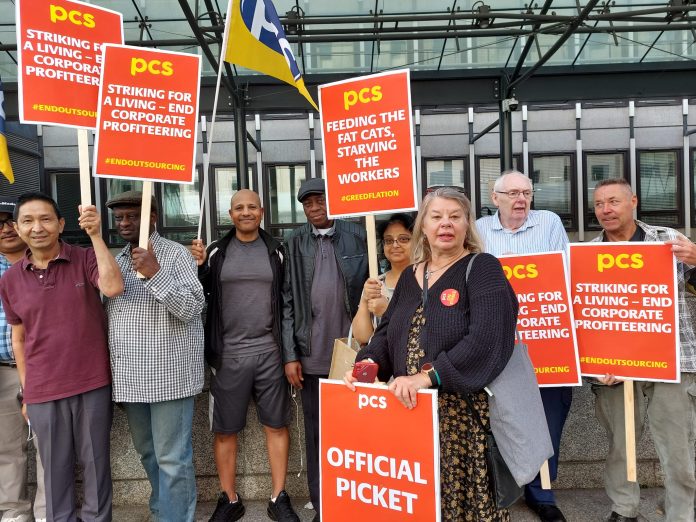After a hard-fought campaign the results of the PCS general secretary and assistant general secretary elections have been announced. Fran Heathcote has been elected general secretary with 10,340 votes. Marion Lloyd, a Socialist Party member standing on behalf of the Broad Left Network grouping in the union, lost by just 783 votes, with 9,557 votes. Marion’s vote is an indication of the strong mood among PCS activists for the union to take a more fighting stance on behalf of its members. Fran Heathcote’s victory was narrow, despite being the ‘continuity candidate’; currently national President of the union and backed by the outgoing general secretary Mark Serwotka.
The turnout in the election was very low, 11.5% compared to 18.6% in 2019. This undoubtedly reflects a feeling of disappointment among many members at the weakness of the union’s leadership over the past period. Nonetheless, an important layer of activists drew the conclusion that they needed to vote in order to get the campaigning leadership the union needs.
The mood for change was also reflected in the re-election of John Moloney as assistant general secretary, with 11,705 votes compared to 8,152 for his opponent, an unelected full-time official of the union, who was also backed by Mark Serwotka. John and Marion stood on a joint ‘action not words’ ticket, pledging to campaign to rebuild the PCS’s national campaign on pay, pensions, redundancy rights and jobs, including fighting for a 10% pay rise and a £15 an hour minimum wage. Both also pledged to remain on their civil service wages, and to donate the rest of their salaries to union campaigns.
Over the last two years we have seen the biggest fall in living standards since the 1950s. For civil servants, like many others, that has come on top of a decade of real-terms pay cuts. Trade unionists have responded with the biggest and most sustained strike wave for three decades.
Many have drawn important lessons from that experience, including the need to elect militant fighting leaderships. However, electing fighting national leaders is only one step to strengthening and transforming our trade union movement. Socialist Party members in PCS will be campaigning as part of the Broad Left Network for the election of a team of National Executive Committee members on the same campaigning policies as we fought on in this election, as part of a campaign to strengthen the union at every level.
That will be vital, because, as Marion has argued, it is clear that – whoever is in government – workers are going to have to fight for decent pay, conditions and public services. Successive Tory-led governments have presided over unprecedented austerity, but unfortunately Keir Starmer’s Labour is not offering anything fundamentally different. Starmer has retreated from almost all the anti-austerity pledges contained in the 2019 Labour manifesto under Jeremy Corbyn’s leadership. He has even praised Maggie Thatcher, whose crimes against trade unionism included banning the predecessor of the PCS, the CPSA, from GCHQ. Trade union leaders who are prepared to defend workers interests whoever is in government are going to be vital in 2024 and beyond.








